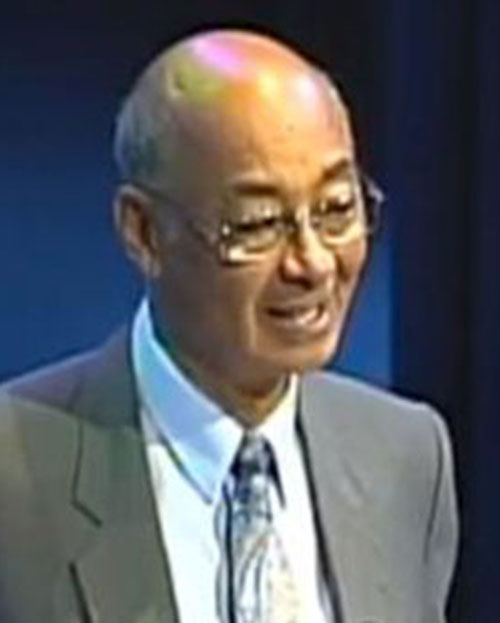Sir Everton Weekes, the last surviving member of the legendary “Three Ws” – Worrell, Walcott and Weekes – died on Wednesday, July 1st at his home in Barbados at the age of 95.
People in the Caribbean are mourning his loss with sad and heavy hearts.
Sir Donald Bradman, who first saw him in Australia in the early 1950s thought that he was the best of the Three Ws.
Sir Everton, who played in 48 Tests, finished his Test career with an average of 58.6, scoring 15 centuries, five of them in consecutive innings, a record that still stands. He was denied a sixth century in Madras when he was unfortunately run out on 90. He never believed in hitting the ball in the air and throughout his distinguished Test career only hit one six!
Former Australian captain Richie Benaud once said that Weekes was a “butcher” of fast and slow bowling and was similar to Bradman in his stroke play and his attitude to batting.
Sir Everton holds the distinction of scoring his first 1000 Test runs in 12 innings, beating Sir Donald who did so in 13 innings – to date an unbroken Test record.
Sir Everton was loved, admired and respected by cricket lovers around the world who had the pleasure of watching him and meeting him. A humble man from modest beginnings, he became one of cricket’s and West Indies’ best known and most distinguished ambassadors.
A wise and wonderful human being, he had the unique capacity to see situations and challenges from different perspectives without distorting or magnifying them in any way.
That was a measure of his wisdom and greatness. As someone once said, “The true measure of wisdom is the capacity to see and understand things from many different perspectives.”
Years ago, I had the privilege of talking to him about cricket, particularly about the mental aspects of the game. When I asked him how he coped with pressure he said, “I always looked at pressure as a chance to show everyone how good a player I was. It gave me an opportunity to become a star for my team and country. I often got a high from pressure.”
A few years ago, MS Dhoni, successful captain of Team India, echoed similar comments when he told me: “Lots of negative things are said about pressure. Pressure to me is just added responsibility. How can it be pressure when God gives you an opportunity to be a hero for your team and your country? That is exhilaration.”
As a young boy, Sir Everton often batted on unprepared wickets without the protection of batting pads. He told me that was excellent training because it helped him to develop effective footwork, and that it taught him to watch the ball closely and carefully from the bowler’s hand on to the bat. Sometimes he batted for days without losing his wicket. That was excellent training for keeping his wicket intact later on. About two decades ago, the West Indies team was travelling to Jamaica by air and one of the Test players was seated next to Sir Everton. At the end of the flight the player, who was very impressed with Sir Everton’s knowledge, allegedly asked a team member if he knew the old man who was sitting next to him. His friend told him that he was Sir Everton Weekes!
It would be interesting to learn how much our current Test players know about the great man and his enormous achievements. One must wonder if in our current system enough is being done to educate our players about West Indies’ cricket history and about West Indies’ champion teams and players.
There is nothing in this life that we can have for very long. People come into our lives and then leave us, sad and aching because of our attachment.
In the Caribbean, we tend to belittle the achievements and stature of our own people, but in the case of Sir Everton, I don’t think that will happen.
Sir Everton will be missed but never forgotten.
He was one of our greatest champions!


